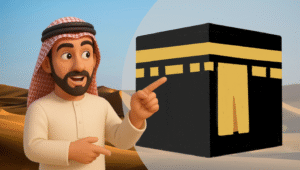
If you’re in the Middle East in March, you might notice a special celebration—عيد الأم (Eid Al-Um), or Mother’s Day. Shops are filled with gifts, social media is flooded with heartfelt messages, and there’s a warm, festive atmosphere everywhere.
If you’re an expat or traveler, you might wonder—what’s the occasion? Unlike in many other countries where Mother’s Day is celebrated in May, here it’s a big deal in March. The day is dedicated to the most cherished person in every family—a mother. That’s why عيد الأم is all about love, family gatherings, and thoughtful gift-giving.
But why is Mother’s Day celebrated on a different date in the Arab world? And if you’re visiting, how can you experience عيد الأم firsthand?
Let Marhabein explain.
Why is عيد الأم or Mother’s Day Different Around the World?
You might be used to Mother’s Day falling on the second Sunday of May, like in the U.S., Canada, and many European countries. But in most of the Middle East, it’s celebrated on March 21st, the first day of spring.
This tradition started in Egypt in 1956, inspired by a newspaper campaign suggesting a day to honor mothers. The idea quickly spread across the region. However, some Middle Eastern countries, like Lebanon and Morocco, still follow the international May date.
Other countries also celebrate Mother’s Day differently. In the UK, it’s tied to the religious tradition of Mothering Sunday during Lent. Mexico and parts of Latin America have a fixed date—May 10th—while Thailand celebrates it on August 12th, the birthday of the Queen Mother.
Also Read: A Different Way to Celebrate عيد الأم 2025 Inspired by Mohamed Ramadan
How Mustafa Amin Helped Bring Mother’s Day to the Middle East
The idea of celebrating عيد الأم or Mother’s Day in the Middle East didn’t just appear out of nowhere—it was the brainchild of Mustafa Amin, a well-known Egyptian journalist and writer. In the 1940s, Amin heard a heartfelt story that would change everything.
According to the tale, a devoted Egyptian mother had dedicated her entire life to raising her son, only for him to abandon her in her old age. Deeply moved, Amin began advocating for a special day to honor mothers and recognize their sacrifices. He used his newspaper, Akhbar El-Yom, to push the idea to the public, sparking conversations across Egypt.
Despite initial resistance—some dismissed it as unnecessary or a “Western import”—Amin’s idea gained traction. By 1956, Egypt officially adopted March 21st, the first day of spring, as Mother’s Day. The idea quickly spread across the Arab world, turning into an annual celebration. Today, it remains one of the most heartfelt occasions in the region, all thanks to one journalist’s determination to ensure that mothers received the appreciation they deserved.
How Different Middle Eastern Countries Celebrate Mother’s Day
Egypt: Where It All Began
Since Egypt was the first Arab country to embrace عيد الأم or Mother’s Day, the celebrations here are filled with tradition. Families take the day to shower mothers with gifts, from flowers and chocolates to sentimental keepsakes.
Many schools hold special performances, where children recite poetry and sing songs dedicated to their mothers. Media outlets air tribute shows, featuring touching stories and interviews with inspiring mothers. It’s a day filled with gratitude, nostalgia, and appreciation.
Saudi Arabia:
In Saudi Arabia, Mother’s Day is widely celebrated, though it wasn’t always the case. Initially, some saw it as a Western influence, but over time, it has become a cherished family occasion. Gift-giving is a major highlight, with perfumes, designer accessories, and gold jewelry being popular choices.
While some families keep celebrations low-key at home, luxury hotels and restaurants offer elaborate Mother’s Day brunches and dining experiences. Despite modernization, many Saudi families still emphasize personal gestures, such as handwritten letters or heartfelt prayers for their mothers.
Lebanon & Morocco:
Unlike most Arab countries, Lebanon and Morocco celebrate Mother’s Day in May, following the Western calendar. This is largely due to historical and cultural influences—both countries have strong ties to Europe, particularly France.
Many international schools and businesses follow the global Mother’s Day schedule, making it the default celebration date. While the spirit of the day remains the same, the timing aligns more closely with global traditions rather than the Middle Eastern March 21st date.
UAE:
The UAE takes عيد الأم or Mother’s Day celebrations to another level, blending family values with luxury experiences. Gifting is taken seriously, with designer brands, premium spa treatments, and high-end jewelry topping the list. Shopping malls host extravagant sales, and many hotels roll out exclusive afternoon teas and fine-dining experiences just for moms.
But it’s not just about lavish gifts—many families still celebrate in an intimate way, preparing home-cooked meals or spending quality time together. Whether through grand gestures or simple moments, Mother’s Day in the UAE is all about making mothers feel truly special.
Also Read: How Middle Eastern Culture is Evolving: Tradition vs Modern Lifestyles

How Can You Experience عيد الأم in the UAE?
If you’re in the UAE on March 21st, there are plenty of ways to soak in the celebrations. Even if you’re not personally celebrating, it’s a great way to see how important family is in the region.
- Try a Special Brunch or Afternoon Tea – Many high-end hotels and restaurants roll out exclusive Mother’s Day brunches and tea experiences. It’s the perfect excuse to treat yourself to a fancy meal.
- Explore Shopping Events – Malls like The Dubai Mall, Mall of the Emirates, and Yas Mall have special Mother’s Day promotions, giveaways, and themed displays. It’s a great time for shopping or just browsing.
- Check Out Cultural Events – Some places host poetry readings or storytelling sessions about the role of mothers in Arab culture. It’s a unique way to experience the deeper meaning of the celebration.
- Gift an Experience – The UAE is all about luxury, and many families opt for experience-based gifts like spa treatments, a desert resort getaway, or even a private yacht cruise.
- Soak in the Festive Atmosphere – Even if you’re just walking through a mall or dining out, you’ll notice the celebratory mood. You might hear people saying Happy Mother’s Day or see beautifully wrapped gift boxes everywhere.
Mother’s Day in the Middle East is more than just a commercial event—it’s a heartfelt celebration of family, tradition, and gratitude. If you’re visiting during this time, take a moment to appreciate the love and warmth surrounding this special day.



